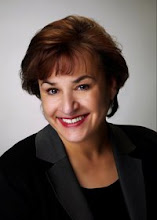You are 50 years old. Your periods have been somewhat irregular for a year or so. They are now lighter, and you've missed a few. Your internal thermostat has gone on the fritz. One minute you are hot the next, sweaty and cold. You don't sleep well at all with frequent waking at night, and you are a miserable grouch during the day.
Welcome to Menopause
The truth is that life expectancy in 1900 was 47 years. Aristotle wrote that women stopped bearing children in the fifth decade of life. You are an experiment in living beyond reproductive life. Most other animals die when their reproductive capacity ends. You are in THE CHANGE.
So what does this mean for you? Looking in the mirror you look pretty good. Oh well, a few grey hairs here and there and some wrinkles are beginning to creep up, but you feel like you are young. What's happening?
Menopause is defined as the time when a year has passed and a woman no longer has periods. This becomes tricky because as soon as ten months pass,you have another period, and start the clock over. This drives me crazy as a physician, because my patients are asking when this is going to end. Reality states that this is a process, not a time and date. Patience and understanding are needed to see you through, plus some girlfriends and maybe a hormone or two! Today's entry is designed to introduce the topic of the third stage of life, living beyond reproduction, or as a postmenopausal woman.
Current thinking divides life into three stages, 0-30 years when growing physically, intellectually, and gaining financial independence is achieved, then 31-60 in your maturity when family building, career climbing, and acquisiton is important, and the third from 61-90 as a post reproductive life when divesting, giving back, and spirituality gain importance.
Actual menopause occurs around age 51 in most US women. It may be variable with < 35 years of age considered pathologic, and I have had women up to 59 still having regular menses. You are born with all the eggs you will ever have. The eggs in the ovaries are where your reproductive hormones are produced. You make estrogen every day, and then after ovulation you make estrogen and progesterone. Now the object of ovulation is pregnancy, so if you are pregnant, you will make estrogen and progesterone until delivery. If you are not pregnant you continue to make estrogen but stop making progesterone from the ovary after about 14 days. This change in hormonal production destablalizes the uterine lining, and a period occurs.
So what is it I feel? Not eveybody is symptomatic in the menopause. Some women, about 25% don't have much in the way of hot flashes. That leaves the majority with some symptoms. These vary in intensity from bothersome to disruptive. Many remedies are available, and work quite well for women. They have been used for a long time with some results. Soy products are weak naturally occuring estrogens, and afford relief, thus marking a difference in reportable symptoms among East Asian women who consume lots of soy products.Caution is advised, however because they do demonstrate pharmacologic effects on the breast.Good sources of information can be found at http://www.menopause.org/, the North American Menopause Society publishes a great website with lots of great factual information. The other is http://www.acog.org/, the American College of Obstetricians and Gynecologists who have patient education literature for review.
Until next time
Ladies' Doctor

No comments:
Post a Comment